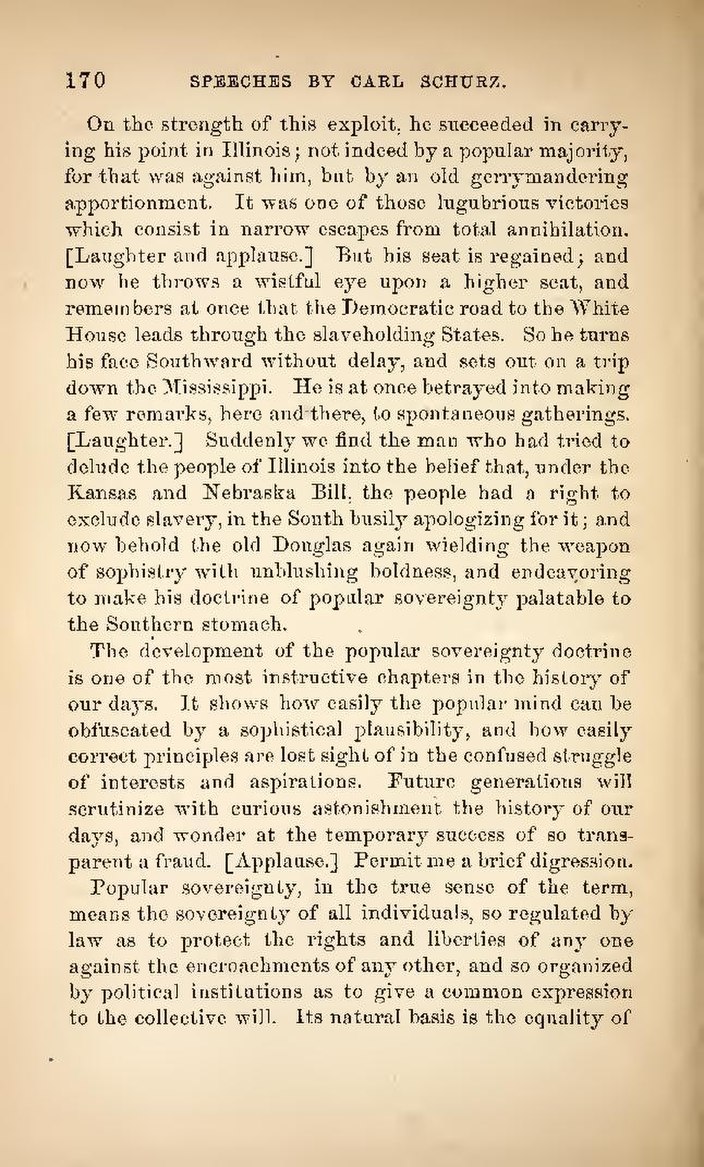On the strength of this exploit, he succeeded in carrying his point in Illinois; not indeed by a popular majority, for that was against him, but by an old gerrymandering apportionment. It was one of those lugubrious victories which consist in narrow escapes from total annihilation. [Laughter and applause.] But his seat is regained; and now he throws a wistful eye upon a higher seat, and remembers at once that the Democratic road to the White House leads through the slaveholding States. So he turns his face Southward without delay, and sets out on a trip down the Mississippi. He is at once betrayed into making a few remarks, here and there, to spontaneous gatherings. [Laughter.] Suddenly we find the man who had tried to delude the people of Illinois into the belief that, under the Kansas and Nebraska Bill, the people had a right to exclude slavery, in the South busily apologizing for it; and now behold the old Douglas again wielding the weapon of sophistry with unblushing boldness, and endeavoring to make his doctrine of popular sovereignty palatable to the Southern stomach.
The development of the popular sovereignty doctrine is one of the most instructive chapters in the history of our days. It shows how easily the popular mind can be obfuscated by a sophistical plausibility, and how easily correct principles are lost sight of in the confused struggle of interests and aspirations. Future generations will scrutinize with curious astonishment the history of our days, and wonder at the temporary success of so transparent a fraud. [Applause.] Permit me a brief digression.
Popular sovereignty, in the true sense of the term, means the sovereignty of all individuals, so regulated by law as to protect the rights and liberties of any one against the encroachments of any other, and so organized by political institutions as to give a common expression to the collective will. Its natural basis is the equality of
